
The Complete Plain Words, titled simply Plain Words in its 2014 revision, is a style guide written by Sir Ernest Gowers, published in 1954. It has never been out of print. It comprises expanded and revised versions of two pamphlets that he wrote at the request of HM Treasury, Plain Words (1948) and ABC of Plain Words (1951). The aim of the book is to help officials in their use of English as a tool of their trade. To keep the work relevant for readers in subsequent decades it has been revised by Sir Bruce Fraser in 1973, by Sidney Greenbaum and Janet Whitcut in 1986, and by the original author's great-granddaughter Rebecca Gowers in 2014.

Stranger in a Strange Land is a 1961 science fiction novel by American author Robert A. Heinlein. It tells the story of Valentine Michael Smith, a human who comes to Earth in early adulthood after being born on the planet Mars and raised by Martians, and explores his interaction with and eventual transformation of Terran culture.
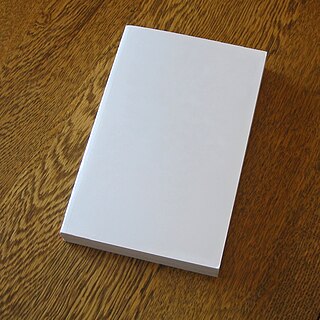
A paperback book is one with a thick paper or paperboard cover, and often held together with glue rather than stitches or staples. In contrast, hardback (hardcover) books are bound with cardboard covered with cloth, leather, paper, or plastic.

Sir Nikolaus Bernhard Leon Pevsner was a German-British art historian and architectural historian best known for his monumental 46-volume series of county-by-county guides, The Buildings of England (1951–74).
Kyril Bonfiglioli was an British art dealer, magazine editor and comic novelist. His eccentric and witty Mortdecai novels have gained a following since his death.

Penguin Books Limited is a British publishing house. It was co-founded in 1935 by Allen Lane with his brothers Richard and John, as a line of the publishers The Bodley Head, only becoming a separate company the following year. Penguin revolutionised publishing in the 1930s through its inexpensive paperbacks, sold through Woolworths and other stores for sixpence, bringing high-quality fiction and non-fiction to the mass market. Its success showed that large audiences existed for serious books. It also affected modern British popular culture significantly through its books concerning politics, the arts, and science.
George Mikes was a Hungarian-born British journalist, humorist and writer, best known for his humorous commentaries on various countries.
The bibliographical definition of an edition is all copies of a book printed from substantially the same setting of type, including all minor typographical variants.
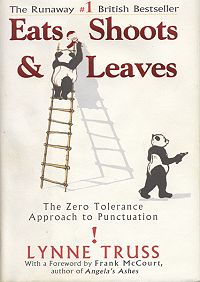
Eats, Shoots & Leaves: The Zero Tolerance Approach to Punctuation is a non-fiction book written by Lynne Truss, the former host of BBC Radio 4's Cutting a Dash programme. In the book, published in 2003, Truss bemoans the state of punctuation in the United Kingdom and the United States and describes how rules are being relaxed in today's society. Her goal is to remind readers of the importance of punctuation in the English language by mixing humour and instruction.

Paul Francis Jennings was an English humourist and author. After his Catholic education, Jennings served in World War II. For many years he wrote a column, Oddly Enough, in British newspaper The Observer. Many collections of his work were published, including The Jenguin Pennings by Penguin Books in 1963. He also wrote popular children's books including The Great Jelly of London, The Hopping Basket, and The Train to Yesterday.
Nicolas Clerihew Bentley was a British writer and illustrator, best known for his humorous cartoon drawings in books and magazines in the 1930s and 1940s. The son of Edmund Clerihew Bentley, he was given the name Nicholas, but opted to change the spelling.
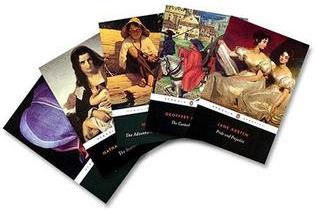
Penguin Classics is an imprint of Penguin Books under which classic works of literature are published in English, Spanish, Portuguese, and Korean among other languages. Literary critics see books in this series as important members of the Western canon, though many titles are translated or of non-Western origin; indeed, the series for decades since its creation included only translations, until it eventually incorporated the Penguin English Library imprint in 1986. The first Penguin Classic was E. V. Rieu's translation of The Odyssey, published in 1946, and Rieu went on to become general editor of the series. Rieu sought out literary novelists such as Robert Graves and Dorothy Sayers as translators, believing they would avoid "the archaic flavour and the foreign idiom that renders many existing translations repellent to modern taste".
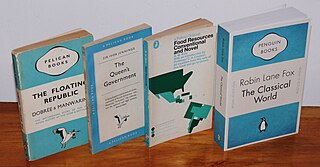
Pelican Books is a non-fiction imprint of Penguin Books founded by Allen Lane and V. K. Krishna Menon. It publishes inexpensive paperbacks of academic topics intended to reach a broader audience. The imprint originally operated from 1937 to 1984, and was relaunched in April 2014.
The New Series Adventures are a series of novels relating to the long-running BBC science fiction television series, Doctor Who. The 'NSAs', as they are often referred to, are published by BBC Books, and are regularly published twice a year. Beginning with the Tenth Doctor, a series of 'Quick Reads' have also been available, published once a year. With exception to the Quick Reads, all of the NSAs have been published in hardcover to begin with, and have been reprinted in paperback for boxed collections that are exclusive to The Book People and Tesco. Some of the reprints amend pictures of the companion of the novel from the cover. Some of the hardback editions have also been reprinted to amend pictures of Rose.
Hugo Williams is an English poet, journalist and travel writer. He received the T. S. Eliot Prize in 1999 and Queen's Gold Medal for Poetry in 2004.

Colin Spencer was an English writer and artist who produced a prolific body of work in a wide variety of media after his first published short stories and drawings appeared in The London Magazine and Encounter when he was 22. His work included novels, short stories, non-fiction, vegetarian cookery books, stage and television plays, paintings and drawings, book and magazine illustrations. He wrote and presented a television documentary on vandalism, appeared in numerous radio and television programmes and lectured on food history, literature and social issues. For fourteen years he wrote a regular food column for The Guardian.
Dale Spender was an Australian feminist scholar, teacher, writer and consultant. In 1983, Dale Spender was co-founder of and editorial advisor to Pandora Press, the first of the feminist imprints devoted solely to non-fiction, committed, according to The New York Times, to showing that "women were the mothers of the novel and that any other version of its origin is but a myth of male creation". She was the series editor of Penguin's Australian Women's Library from 1987. Spender's work is "a major contribution to the recovery of women writers and theorists and to the documentation of the continuity of feminist activism and thought".
Geoffrey Brereton was a scholar and critic of French literature and Spanish literature.

Penguin Random House LLC is an Anglo-American multinational conglomerate publishing company formed on July 1, 2013, with the merger of Penguin Books and Random House. Penguin Books was originally founded in 1935 and Random House was founded in 1927. It has more than 300 publishing imprints. Along with Simon & Schuster, Hachette, HarperCollins and Macmillan Publishers, Penguin Random House is considered one of the 'Big Five' English language publishers.
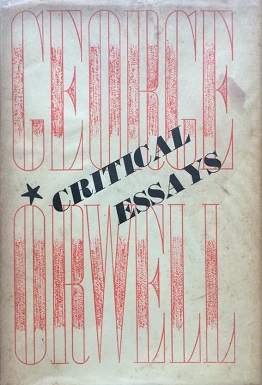
Critical Essays (1946) is a collection of wartime pieces by George Orwell. It covers a variety of topics in English literature, and also includes some pioneering studies of popular culture. It was acclaimed by critics, and Orwell himself thought it one of his most important books.












